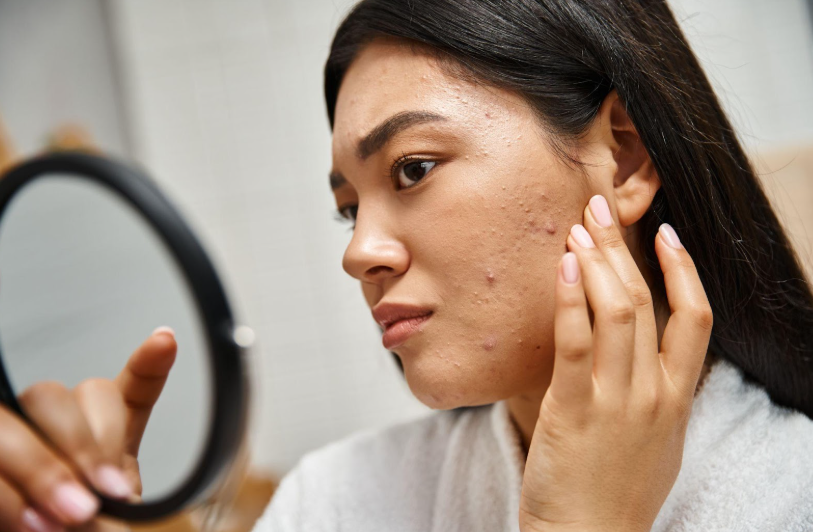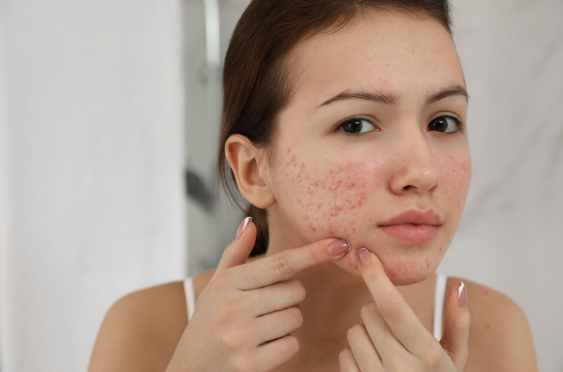Frequently Asked Questions about Squamous Cell Carcinoma

Frequently Asked Questions about Squamous Cell Carcinoma
Squamous cell carcinoma is a form of skin cancer. It develops in the skin's top layers, usually where the body gets exposed to the sun regularly. Squamous cell carcinoma is the second most common skin cancer.
What Causes This Skin Cancer?
UV rays can damage cellular DNA on the outer layers of skin. Usually, new skin cells replace older, shedding cells, however UV radiation damages this process. Skin cells grow out of control, accumulating into cancerous lesions.
What Are the Signs of This Cancer?
The first sign of squamous cell carcinoma will be a scaly red patch or sore spot. It will be small and won't heal. There are stages as well as symptoms. Science bases the following stages partly on how the cancer metastasized.
Stage 0: Squamous cell carcinoma initially develops in squamous cells located in the top layers of skin. Cancer has yet to spread beyond the epidermis.
Stage 1: At this stage, the cancer's spread deeper in skin layers but hasn't developed in healthy tissue or lymph nodes.
Stage 2: The progression is deeper, but cancer hasn't spread into nodes or tissue. One sign of Stage 2 is a spread to lower skin layers or nerves.
Stage 3: Cancer has spread into lymph nodes.
Stage 4: In the final stage, cancer has now clearly spread into upper skin layers and is visible.
What Are the Symptoms?
● Red, firm nodules on skin
● Flat sores with a layer of scaly crust
● A new raised or sore area on an old ulcer or scar
● A scaly, rough patch that may turn into an open sore
● A rough patch or red sore in your mouth
How Dangerous Is This Cancer?
If it's allowed to spread, squamous cell carcinoma can be deadly. But if caught early, the doctor will be able to remove the cancerous tissue. This is why it's important to take any unusual signs seriously and get checked early.
So, This Cancer Only Happens to Areas Exposed to the Sun?
No. Skin carcinoma can develop in other areas not usually exposed to sunlight. Science has yet to determine why it happens. The phenomenon suggests there are other causes yet to be discovered. But there are suspicions about the following potential factors:
Genetic Predisposition
Cancer-influencers are hereditary. A person can be born with a defective set of these genes and later in life, the defective gene could trigger the development of squamous cell carcinoma.
Environmental Conditions
Toxins can lead to skin damage—a step that can prompt squamous cell carcinoma. This includes chemical burns and pollutants like motor vehicle exhaust, tobacco smoke, and arsenic.
Deficiencies in Immune Systems
The medical community sees immune deficiencies, especially ones created by drugs used after organ transplants, as a contributor.
Another situation linked to this skin cancer is viral infections like the human immunodeficiency virus [HIV] and human papillomavirus [HPV]. They weaken the immune system, making it difficult to control skin cell production.
Will Sunscreen Help?
Sunscreen is important for protecting the skin. It's also important to remember the sun and its ultraviolet potential aren't the only causes of skin cancer.
Does Squamous Cell Carcinoma Spread Quickly?
Squamous cell carcinoma spreads at undermined rates, though it typically happens slowly. If caught early, you can get treated before the disease spreads beyond the upper skin layers.
Who Is More Likely to Get Squamous Cell Carcinoma?
● Persons with a history of blistering sunburns, especially as a child or teenager
● Anyone who regularly uses tanning beds
● Patients with a history of this skin cancer
How Will Doctors Detect Squamous Cell Carcinoma?
Your doctor will excise a small sample of skin—a biopsy—to examine under microscopic conditions.
How Is Squamous Cell Carcinoma Treated?
For treatment, doctors will perform one of the following procedures:
● Use an electric needle to scrape or burn the cancer
● Use surgery to cut the cancerous tissue out
● Use radiation or extreme cold to kill the cancer
● Use chemotherapy
● Use radiation if the cancer is spreading to other body parts
For situations likely to reoccur after successful treatment, a dermatologist may suggest Mohs surgery. Mohs entails a more complex and extensive surgery. This is the option for cancers under the skin, on certain areas of the face or genitals, or tumors larger than four-fifths of an inch.
How Can I Prevent This Form of Cancer?
● Limited exposure to the sun is the best way. Stay in the shade. Avoid the sun during the hottest hours of the day, usually between 10 am and 4 pm.
● Wear long pants, long-sleeved shirts, broad-brimmed hats, and other protective gear
● Limit or eliminate the use of tanning beds or sunbathing
● Apply sunscreen that's no less than 30 SPF. Use it every two hours if you're sweating or swimming
● Monitor your skin and report concerns to your doctor. Examine your trunk, chest, the underside of arms and hands, legs and feet (including soles and between the toes), and around your private areas
When Should I See a Doctor?
You want to consult a clinician if there's a patch of flat scaly skin or a scab or sore that doesn't heal in eight weeks. Dermatologists perform most squamous cell cancer procedures. A surgical oncologist will treat advanced cancers. Have a question or looking for further information? Reach out to us at Pine Belt Dermatology today.










